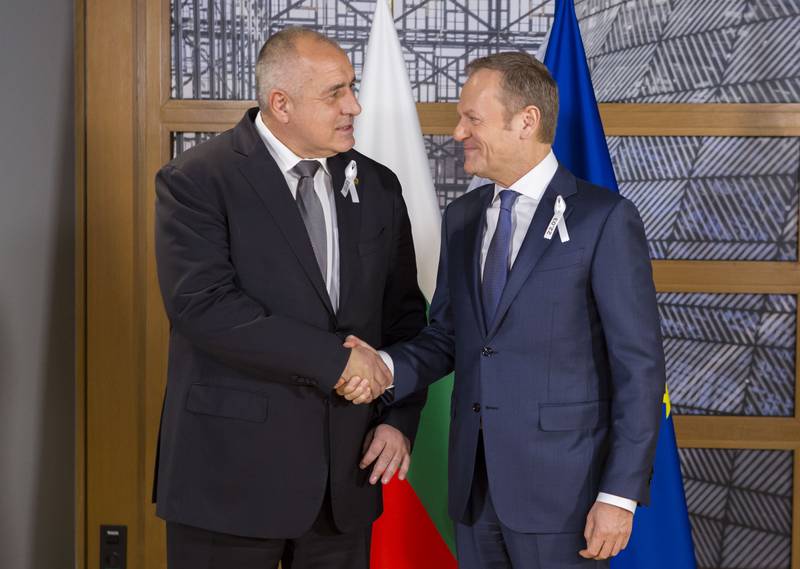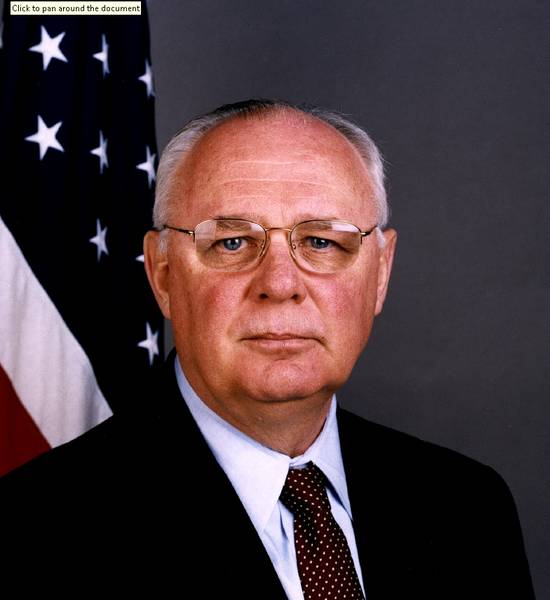A Wind of Change?
Adelina Marini, November 28, 2011
 Russia has improved the Chinese record of negotiations for membership in the World Trade Organisation (WTO) from 15 to 18 years and is going to become a fully fledged member of the world trade community after it gets a final recommendation by the ministers of trade of the organisation between 15 and 17 of December, considered a pure formality. In fact, the reason for this new world record lies not with Russia's incapability to complete the negotiations but in its hesitation whether it is worth joining the organisation, which it will benefit from but will also have to abide with certain rules. After all, the Russian membership in WTO was used very successfully as by Russia itself, so by many of its Western partners too when negotiating on one or another important international issue. This was one of the exchange coins in the EU-Russia relations.
Russia has improved the Chinese record of negotiations for membership in the World Trade Organisation (WTO) from 15 to 18 years and is going to become a fully fledged member of the world trade community after it gets a final recommendation by the ministers of trade of the organisation between 15 and 17 of December, considered a pure formality. In fact, the reason for this new world record lies not with Russia's incapability to complete the negotiations but in its hesitation whether it is worth joining the organisation, which it will benefit from but will also have to abide with certain rules. After all, the Russian membership in WTO was used very successfully as by Russia itself, so by many of its Western partners too when negotiating on one or another important international issue. This was one of the exchange coins in the EU-Russia relations.
At every EU-Russia summit Brussels used its weight in the WTO as an instrument to achieve specific concessions from Moscow, most of all in the energy field.
What would Russia's membership in the WTO bring?
According to the World Bank, for Russia itself that would mean an increase of GDP by around 3.3% in the coming years. Russia's trade negotiator Maxim Medvedkov said that in fact a leading motive for his country's decision to do its best to join the organisation were China's results after it joined WTO in 2001. Moreover, as the New York Times commented, this membership marks Russia's arrival as an up-and-coming “BRIC” country. This is the group of the emerging markets, which is now more correctly to be called the new global powers: Brazil, Russia, China, India.
According to the European Commission, on its part, Russia's membership in WTO would have great significance in bilateral and multilateral perspective. On the one hand Russia and its trade partners would benefit from the integration of the country in the global trade relations, based on rules. And for the EU this is of utmost importance because Russia is the third largest partner of the Community after the US and China. One of the most controversial issues so far in the Russian-European relations will be solved, which is access of European investors and exporters to the Russian market. The Russian import duties will drop and there would be a limit on export duty levels for a list of essential raw materials.
In terms of money, the Commission estimates the benefits from Russia's entry in WTO to 3.9bn euros. The trade with Russia amounted to 244bn euros in 2010, while in 2009 the trade volume was 183bn euros. An increase is registered in exports and imports to and from Russia. For now the EU is the most important investor in Russia, as it is estimated that 75% of all investments in the country come from the EU.
The biggest obstacle for Russia's entry in the organisation were the unresolved relations with Georgia after the war between the two countries in 2008 because of the breakaway regions Abkhazia and South Ossetia. In the last weeks, however, Tbilisi and Moscow have concluded a trade agreement under the mediation of Switzerland.
A grown-up Russia?
Yet with the first gust of the wind of change - in the distant 1993 - late president Boris Yeltsin filed Moscow's application for WTO membership as a symbol of the country's path of democratisation and economic opening, after taking off the chains of the Soviet Union. After Mr Yeltsin's death, however, the governance of Russia was entrusted to former KGB agent Vladimir Putin who, with a firm hand, put the economy in order, stabilised the country and made it growing with a fast pace, mainly due to the quite lucrative quick risings of the prices of oil. In the framework of his two terms he managed to change completely the West's apprehension of Russia - from hope that Russia would become a fully fledged member of the democratic community and would leave its imperial ambitions, to quite the opposite. Mr Putin was blamed for being even authoritarian, after without much noise he passed current President Dmitry Medvedev as his successor.
This inclined the international community into thinking that Mr Medvedev would be just a pawn, while Mr Putin would continue to rule Russia from the prime ministerial chair. Alas, this year the intrigue further deepened because for a while it was not clear whether Medvedev would stand for president for a second term, but he ceded the place to Putin. The presidential elections in Russia will take place in spring next year (2012) and Mr Putin announced his intentions to stand for president this fall, which definitely did not cause fervour in the West, because during Dimitry Medvedev's term several important steps have been made, aimed to restore trust between Russia and the international community.
One such step is the agreement for modernisation with the European Union that includes, aside from technological modernisation but also political and social one. Another important achievement was the conclusion of a treaty with the US for strategic arms reduction. It is worth noting that the negotiations on a START II were transformed into a totally different treaty, suspended by Vladimir Putin himself after the then US president George W. Bush announced a unilateral suspension of the American role in it.
Russia's opening now looks seriously endangered because of Vladimir Putin's return  to Kremlin. Additional causes for concern gave his first conversation with foreign representatives from the discussion club Valdai just a day after the conclusion of the negotiations with WTO (November 19). There were several very important things in this conversation. It makes clear what Russia's plans are for political modernisation and what Russia's visions are for the crisis in the European Union.
to Kremlin. Additional causes for concern gave his first conversation with foreign representatives from the discussion club Valdai just a day after the conclusion of the negotiations with WTO (November 19). There were several very important things in this conversation. It makes clear what Russia's plans are for political modernisation and what Russia's visions are for the crisis in the European Union.
On the first issue Mr Putin admitted that for sure the Russian system was far from perfect. Moreover, the Russian premier made it perfectly clear that he was very much aware of the criticism and even jokes regarding the governance of his tandem with Dmitry Medvedev: "We know it, and we know criticisms of, say, the leadership system President Medvedev and I offered to this country in what is known as our tandem. However, please note that I don’t know a single government system that is perfect". He invested a lot of efforts to convince the audience what made a firmer hand necessary in the beginning of the transition in Russia.
Putin even quoted the example of Britain, where former premier Tony Blair, whom he called "a good friend", left the leadership post of the party and without elections automatically his successor took over the party and the cabinet. "I don’t know whether that was good or bad – I mean I have my personal opinion but I will not make judgements here", Putin said and added: "That is not our way: we hold elections and ask our country’s citizens to make their choice and show what they think about our past efforts and the programme for the nation’s future development, which envisages economic modernisation and growth guaranteed on a new basis, and new high-tech jobs. Our ambitious goal is to create 25 million such jobs".
He nonetheless said that the political system in the country had to be improved, including harmonisation of legislation with that of neighbouring countries. This can hardly be comforting, especially against the backdrop of the very intensive efforts of Russia to create a Eurasian union. Besides, the criminal code had to be humanised, whatever that might mean. The finale of the enlisted guidelines for reforms is especially important to be outlined in Putin's statement: "I would like to stress once again that we don’t think everything has fully exhausted itself. Neither do we intend to mark time". In other words, part of the current model of political governance is regarded by Mr Putin as still capable of bearing fruit. Besides, it becomes clear that the Putin-Medvedev tandem does not intend to hurry.
Another interesting element in Putin's conversation with the Valdai club was his opinion about the developments in the EU. As he said that EU's share in the trade with Russia was 50%, the developments in the community were a reason for concern. According to him, though, the European Central Bank had to interfere - something which at the moment is a major issue in the European Union and with which Germany fails to agree. "But our experts, some of our leading experts believe that the problem is unlikely to be resolved without the ECB’s direct input, because the operation of the European Financial Stability Facility (EFSF) is based on ties with the International Monetary Fund, which doesn’t have the necessary resources either". Putin several stressed several times that the global financial crisis was external for Russia, with which he obviously wanted to imply that he might be ruling with a firm hand but at least he had stable financial and economic policy.
He reassured that there was no danger of a serious increase of inflation if the ECB were to intervene and gave the example of the actions of the American central bank - the Federal Reserve, and also the British one.
So, for sure a wind of change is blowing. The question is what change.
 Boyko Borissov, Donald Tusk | © Council of the EU
Boyko Borissov, Donald Tusk | © Council of the EU Boris Johnson | © Council of the EU
Boris Johnson | © Council of the EU James W. Pardew | ©
James W. Pardew | ©